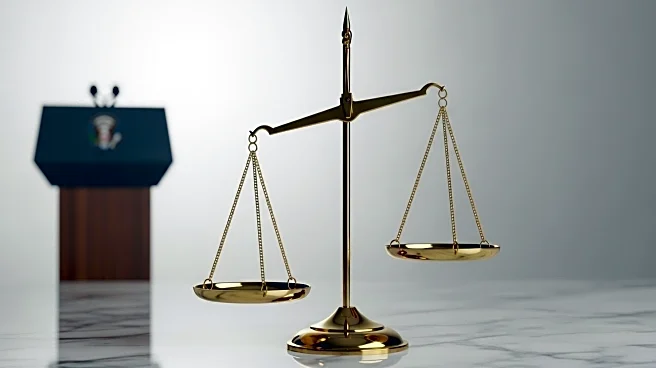What is the story about?
What's Happening?
President Trump's approval rating among Black voters has surged to a new high according to a recent poll conducted by AtlasIntel. The survey indicates that 54 percent of Black voters approve of Trump's performance, while 46 percent disapprove. This marks a significant shift from previous AtlasIntel surveys, which reported much lower approval ratings among Black voters. The poll surveyed 1,066 Americans between September 12 and September 16, 2025, with a margin of error of plus or minus 3 percentage points. Despite this increase, other polls, such as those conducted by YouGov and the New York Times/Siena College, show much lower approval ratings among Black voters, suggesting that the AtlasIntel poll may be an outlier.
Why It's Important?
The increase in approval ratings among Black voters could have significant implications for upcoming elections, including the New Jersey and Virginia gubernatorial races and the 2026 midterms. Historically, Black voters have been a strong Democratic demographic, and any shift in their support could impact the political landscape. If President Trump's approval among Black voters continues to rise, it could provide a boost to Republican candidates who have been linked to Trump. Conversely, if the approval ratings revert to previous levels, it could pose challenges for the GOP in maintaining or gaining political ground.
What's Next?
The approval ratings of President Trump will continue to be closely monitored as a key indicator of his popularity ahead of critical elections. If the trend of increasing approval among Black voters persists, it could influence campaign strategies and voter outreach efforts by both parties. Political analysts and strategists will likely focus on understanding the factors driving this shift and how it might affect voter turnout and preferences in future elections.
Beyond the Headlines
The apparent increase in approval ratings among Black voters raises questions about the reliability and consistency of polling data, especially when sample sizes are small. It also highlights the complexities of voter sentiment and the potential for significant shifts in political alignment within demographic groups. The ethical considerations of polling accuracy and representation are crucial in understanding the broader implications of such data.
















